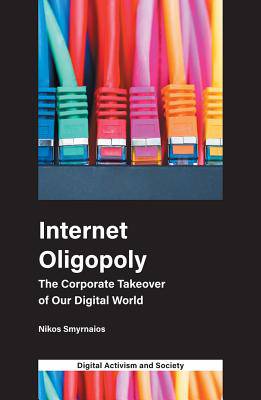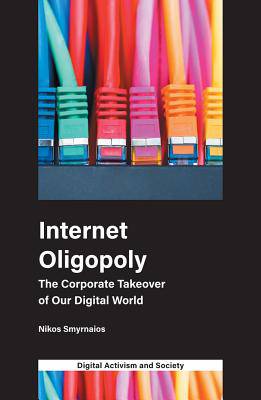
- Afhalen na 1 uur in een winkel met voorraad
- Gratis thuislevering in België vanaf € 30
- Ruim aanbod met 7 miljoen producten
- Afhalen na 1 uur in een winkel met voorraad
- Gratis thuislevering in België vanaf € 30
- Ruim aanbod met 7 miljoen producten
Zoeken
€ 109,95
+ 219 punten
Omschrijving
Over the last decade, the digital technologies in everyday life have multiplied. Our lives have been gradually taken over by digital devices, networks, and services. Although useful, they have also become invasive additions to our personal, professional and public lives. This process has occurred in a globalized and deregulated economy and a few US-based start-ups transformed into an oligopoly of multinationals that today govern the informational infrastructure of our societies.
This book offers an analytical framework of the contemporary internet studied through the lens of history and political economy. Google, Apple, Facebook, Amazon and Microsoft are examined as emblematic products of a new capitalist order that is resolutely opposed to the original project of the internet.
The author retraces the process of commodification that resulted in financial rationales taking over from collective and individual emancipation and uncovers how this internet oligopoly uses its exorbitant market power to eliminate competition; take advantage of global financialization to exploit human labour on a global scale and to avoid taxation; and how it implements strategies to control our communication methods for accessing information and content online, thus increasingly controlling the digital public sphere. The book reveals how the reshaping of society via private company business models impact on the place of work in future societies, social and economic inequalities, and, ultimately, democracy.
This book offers an analytical framework of the contemporary internet studied through the lens of history and political economy. Google, Apple, Facebook, Amazon and Microsoft are examined as emblematic products of a new capitalist order that is resolutely opposed to the original project of the internet.
The author retraces the process of commodification that resulted in financial rationales taking over from collective and individual emancipation and uncovers how this internet oligopoly uses its exorbitant market power to eliminate competition; take advantage of global financialization to exploit human labour on a global scale and to avoid taxation; and how it implements strategies to control our communication methods for accessing information and content online, thus increasingly controlling the digital public sphere. The book reveals how the reshaping of society via private company business models impact on the place of work in future societies, social and economic inequalities, and, ultimately, democracy.
Specificaties
Betrokkenen
- Auteur(s):
- Uitgeverij:
Inhoud
- Aantal bladzijden:
- 192
- Taal:
- Engels
- Reeks:
Eigenschappen
- Productcode (EAN):
- 9781787692008
- Verschijningsdatum:
- 10/09/2018
- Uitvoering:
- Paperback
- Formaat:
- Trade paperback (VS)
- Afmetingen:
- 127 mm x 196 mm
- Gewicht:
- 199 g

Alleen bij Standaard Boekhandel
+ 219 punten op je klantenkaart van Standaard Boekhandel
Beoordelingen
We publiceren alleen reviews die voldoen aan de voorwaarden voor reviews. Bekijk onze voorwaarden voor reviews.








